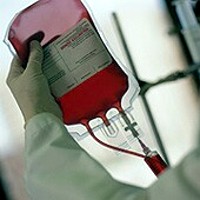The current online issue of the journal Nature features an article with the first results of a clinical trial testing gene therapy on beta-thalassemia, an inherited blood disorder. The trial tests the drug LentiGlobin, developed by bluebird bio (formerly Genetix Pharmaceuticals Inc.) of Cambridge, Massachusetts.
The Nature paper describes the experiences of the first patient to receive the treatment. The patient, a young adult suffering from a severe case of beta thalassemia, received the LentiGlobin treatment about two years ago. The patient, who had previously needed frequent blood transfusions since early childhood, has not needed a transfusion for the past 21 months. He now leads a normal life and works full time as a cook in Paris.
Beta thalassemia is a blood disorder that reduces the production of hemoglobin, the iron-containing protein in red blood cells that carries oxygen to cells throughout the body. In people with beta thalassemia, low levels of hemoglobin lead to a lack of oxygen in many parts of the body. Affected individuals also have a shortage of red blood cells (anemia), which can cause pale skin, weakness, fatigue, and more serious complications. People with beta thalassemia are at an increased risk of developing abnormal blood clots. The disease mainly affects people of Mediterranean, Middle Eastern, South Asian, Southeast Asian and Chinese descent. Some 60,000 children worldwide are diagnosed with the disease each year.
Bluebird bio says LentiGlobin introduces a fully functional human beta-globin gene, under the control of the beta-globin enhancer and locus control region, into the patient’s own hematopoietic (blood forming) stem cells in the bone marrow. The company is also testing the drug on patients with sickle cell anemia.


 RSS - Posts
RSS - Posts
You must be logged in to post a comment.